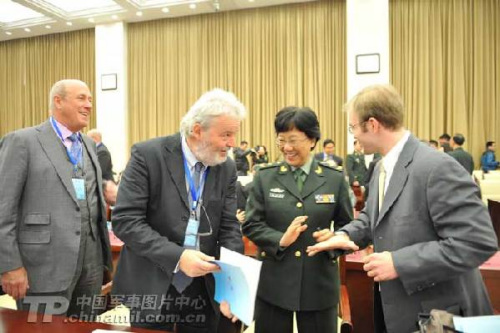
Image courtesy chinamil.com.cn/Zhang Zhe
Daniel Stauffacher, President of ICT4Peace participated in the Fourth Xiangshan Forum (Beijing, 16 to 18 November 2012) entitled “Asia-Pacific Security: New Issues and New Ideas”.
The aim of the Forum was to provide a “high-level academic platform for leaders and senior scholars from world-renowned security-defense think tanks to exchange ideas on hot issues concerning global and Asia-Pacific security and defense, and to explore approaches to cooperation and dialogue among these think tanks”. In particular, Daniel Stauffacher was invited to co-chair a working group, called: “New Areas in Asia-Pacific Security Cooperation: Space Security and Cyber Security”. He called for improving cooperation among states to safeguard a free, open and peaceful cyberspace, increasingly challenged by cybercrime, malware, and terrorist acts using ICTs etc. In view of the increasing number of incidents of cyber-operations (e.g. Stuxnet), he informed the Forum, that the UN and some regional organizations such as the OSCE and the ASEAN Regional Forum (ARF), have been seeking to develop and negotiate Confidence-Building Measures (CBMs) – voluntary commitments to enhance transparency concerning state-on-state action and avoid escalation of cyber incidents. He also recalled other multilateral initiatives, including the UN Group of Governmental Experts (UN GGE), the process launched at the London Conference last year (continued in Hungary 2012 and Korea in 2013) and within relevant IGOs including the ITU, OECD, APEC and NATO. He urged that states considerably increase their focus on these new security challenges and devote more resources for peaceful cooperation and for enhancing cyber-security, through political and technical means.
Amb. Paul Meyer, Senior Advisor of ICT4Peace also participated in the Forum and made an enlightening presentation of the similarities and differences of the challenges and opportunities in Space Security vs Cyber Security.
